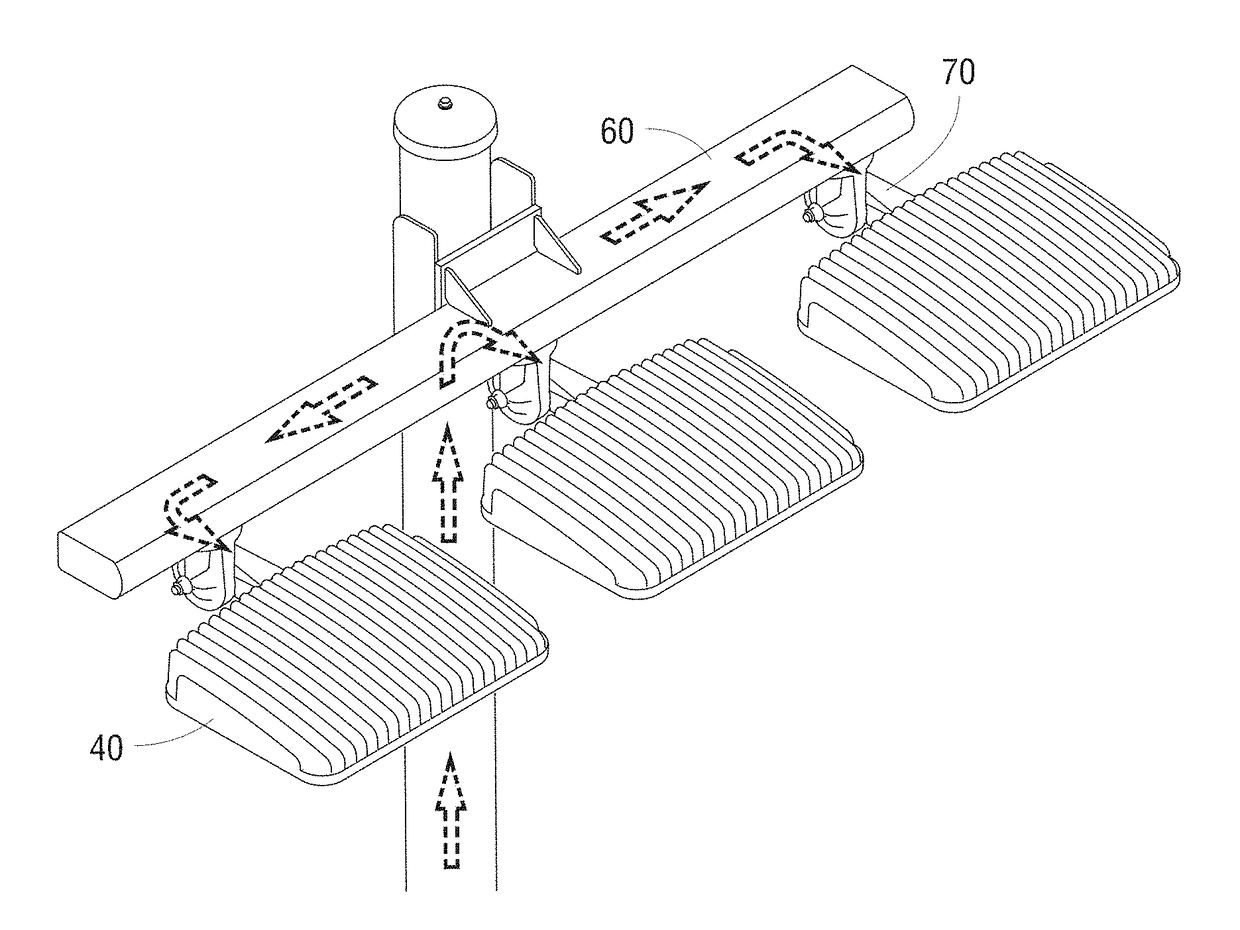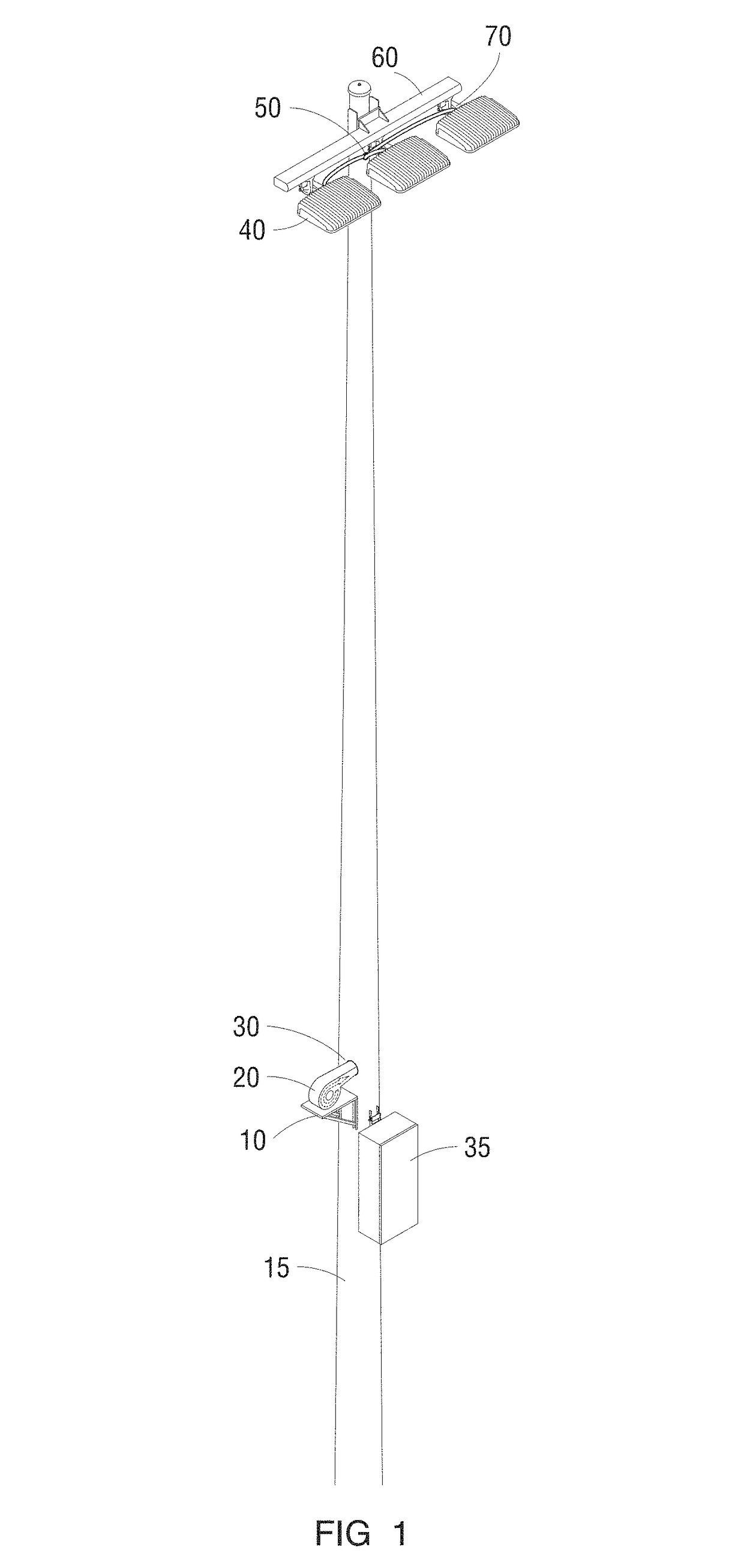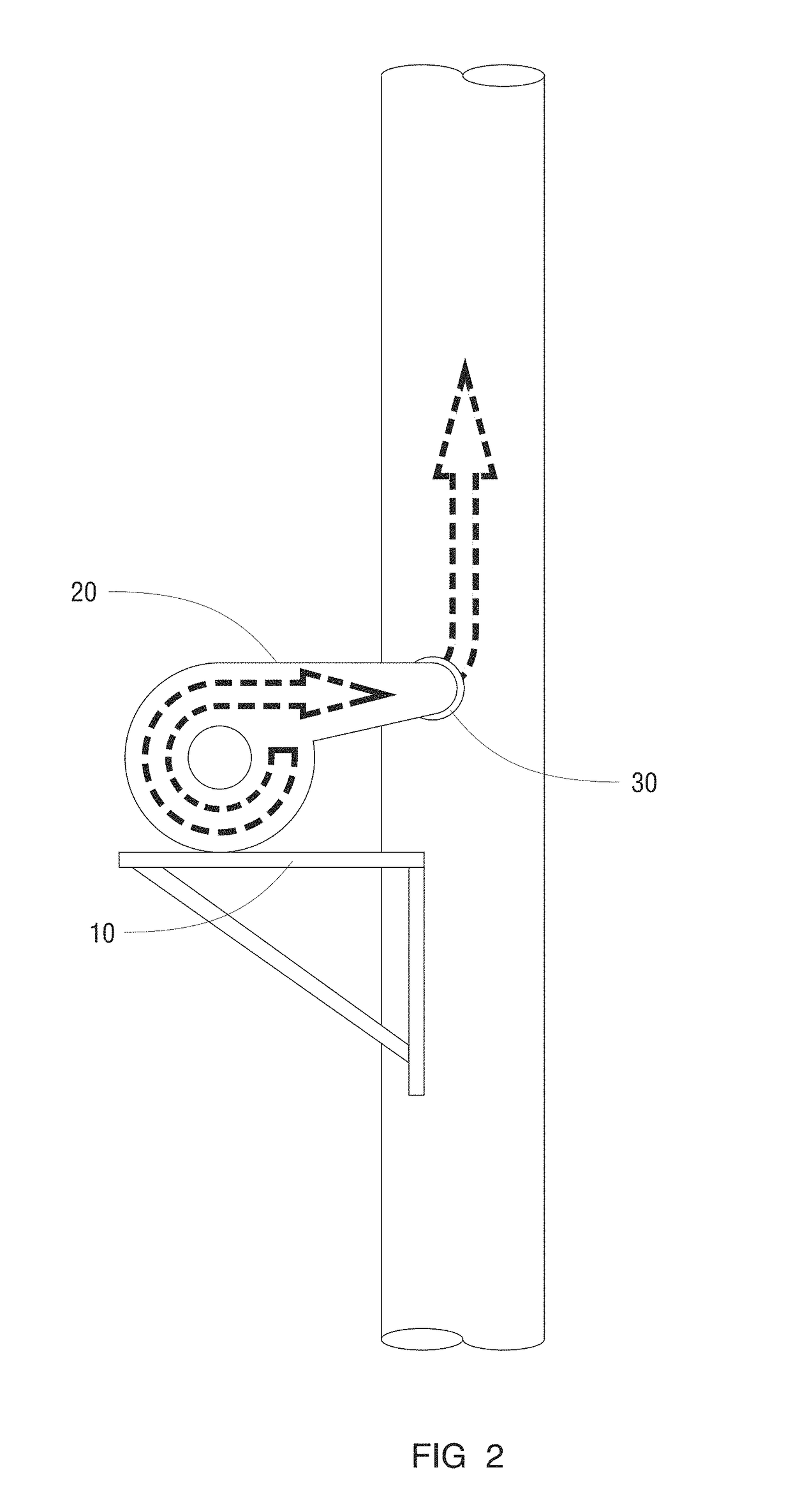Apparatus, method, and system for lighting fixture cooling
a technology for lighting fixtures and cooling devices, applied in lighting and heating devices, instruments, lighting support devices, etc., can solve the problems of capital and operating costs of such subsystems over their normal operating life, and achieve the effect of reducing capital costs, justified costs of air cooling subsystems, and reducing capital and operating costs
- Summary
- Abstract
- Description
- Claims
- Application Information
AI Technical Summary
Benefits of technology
Problems solved by technology
Method used
Image
Examples
embodiment 1
B. Exemplary Method and Apparatus Embodiment 1
[0027]In a first embodiment, pole 15, FIG. 1 elevates light fixtures 40 some distance in the air, on the order of (for example) 50 feet or more. One example of light fixtures 40 are model STR-LWY-15-HT available commercially from BetaLED, Sturtevant, Wis., USA. Another example of light fixtures 40 are those disclosed in U.S. patent application Ser. No. 12 / 626,095, incorporated by reference herein and commonly owned by the assignee of the present application. An example of pole 15 is model LSS50A available from Musco Sports Lighting, Oskaloosa, Iowa, USA, which is essentially a hollow galvanized steel tapered pole of either one piece or multiple slip-fit sections. Pole 15 presents a continuous air pathway from its bottom to top. A typical fifty foot tall pole of this nature has a largest outside diameter of approximately 10 inches at its bottom (approximately 79 square inches cross-sectional area), and approximately 6 inches smallest outs...
embodiment 2
C. Exemplary Method and Apparatus Embodiment 2
[0033]FIG. 4 illustrates a second embodiment having a pole 15, blower 20, opening 30, and LED fixture with heat sink 90. Arrows 25 indicate airflow through the pole and fixture. As is illustrated in FIG. 4, airflow through pole 15, and then across a mounting interface 45 (e.g., as may be appropriate for a non-adjustable or static mounting situation), can provide a direct, continuous air path to the inside of a fixture and the proximate edge of heat sink 90. That air can be directed through and across heat sink 90 and out some type of vent at the distal edge of heat sink 90 so to provide an exhaust for the airflow. U.S. patent application Ser. No. 12 / 626,095 and Ser. No. 12 / 623,875, now U.S. Pat. No. 8,651,704, provide some examples of airflow paths.
D. Options & Alternatives
[0034]As can be appreciated, the foregoing detailed description gives but a few examples of apparatus and methods according to the present invention. Variations obviou...
PUM
 Login to View More
Login to View More Abstract
Description
Claims
Application Information
 Login to View More
Login to View More - R&D
- Intellectual Property
- Life Sciences
- Materials
- Tech Scout
- Unparalleled Data Quality
- Higher Quality Content
- 60% Fewer Hallucinations
Browse by: Latest US Patents, China's latest patents, Technical Efficacy Thesaurus, Application Domain, Technology Topic, Popular Technical Reports.
© 2025 PatSnap. All rights reserved.Legal|Privacy policy|Modern Slavery Act Transparency Statement|Sitemap|About US| Contact US: help@patsnap.com



